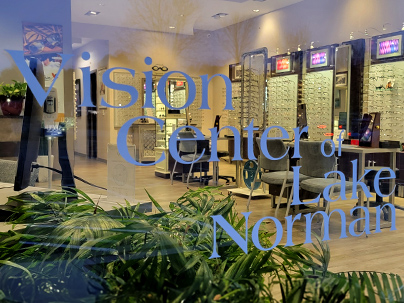Dry Eye Treatment

Dry Eye can have a major impact on your quality of life. You may find your eyes get tired faster or you have difficulty reading. Not to mention the discomfort of a burning sensation or blurry vision. Let’s take a look at dry eye treatments – from simple self-care to innovative prescriptions and therapies – to help you see clearly and comfortably.
What is Dry Eye?
Understanding dry eye will help you determine the best treatment option. Dry eye occurs when a person doesn't have enough quality tears to lubricate and nourish the eye. Tears reduce eye infections, wash away foreign matter, and keep the eye’s surface smooth and clear. People with dry eyes either do not produce enough tears or their tears are poor quality. It’s a common and often chronic problem, especially in older adults.
Preventive Self-Care
Before we delve into more serious dry eye treatment options, here are a few simple self-care options that can manage minor cases of dry eye.
Blink regularly when reading or staring at a computer screen for a long time.
Make sure there’s adequate humidity in the air at work and at home.
Wear sunglasses outside to reduce sun and wind exposure. Wraparound glasses are best.
Take supplements with essential fatty acids as these may decrease dry eye symptoms.
Drink 8 to 10 glasses of water each day to avoid dehydration.
Find out if any of your prescriptions have dry eye as a side effect and if so, see if you can take an alternative.
Artificial Tears
For mild cases of dry eyes, the best option is over-the-counter eye drops. Here are a few tips for selecting the right one:
Low viscosity – These artificial tears are watery. They often provide quick relief with little or no blurring of your vision, but their effect can be brief, and sometimes you must use these drops frequently to get adequate relief.
High viscosity – These are more gel-like and provide longer-lasting lubrication. However, these drops can cause significant blurring of your vision for several minutes. For this reason, high-viscosity artificial tears are recommended at bedtime.
Prescription Dry Eye Treatments
There are several prescriptions that treat dry eye differently. Your eye doctor can advise the best option for your situation.
Scleral Contact Lenses – There are specialty contact lenses that deliver moisture to the surface of the eye. They’re called scleral lenses.
Antibiotics– If your eyelids are inflamed, this can prevent oil glands from secreting oil into your tears. Your doctor may recommend antibiotics to reduce inflammation.

Anti-inflammatory drugs – These are eye drops to control inflammation on the surface of your eyes (cornea) using the immune-suppressing medication cyclosporine (Restasis) or corticosteroids.
Bruder Mask – The Bruder Mask is a therapeutic eye mask designed to provide effective relief for dry eye symptoms. Utilizing moist heat technology, it helps to unclog glands and improve natural tear flow, offering comfort and hydration. Safe, reusable, and easy to use, it’s an ideal solution for soothing tired, dry, and irritated eyes.
Tear-stimulating drugs – Available as pills, gel or eye drops, cholinergic (pilocarpine, cevimeline), these help to increase tear production.
EzTears – EzTears is a premium oral supplement designed to support eye health and alleviate dry eye symptoms. Formulated with a unique blend of essential fatty acids and antioxidants, it helps improve tear quality and reduce inflammation. EzTears offers a convenient, daily solution to promote natural eye lubrication and comfort.
Dry Eye Procedures
Punctal Plugs – Tear ducts can be plugged with tiny silicone plugs to reduce tear loss. By partially or completely closing your tear ducts, it can keep your tears from leaving your eye too quickly.
Low Level Light Therapy (LLLT) – This treatment helps to unblock oil glands. Placed over your eyes, the device delivers mild heat to the eyelids over about 15 minutes.
Intense-Pulsed Therapy – This utilizes pulses of light to liquefy and release hardened oils that have clogged glands in the eyelids.
You don’t have to suffer from the symptoms of dry eye. Talk to your optometrist about dry eye treatment options designed to address the underlying cause of your condition.


